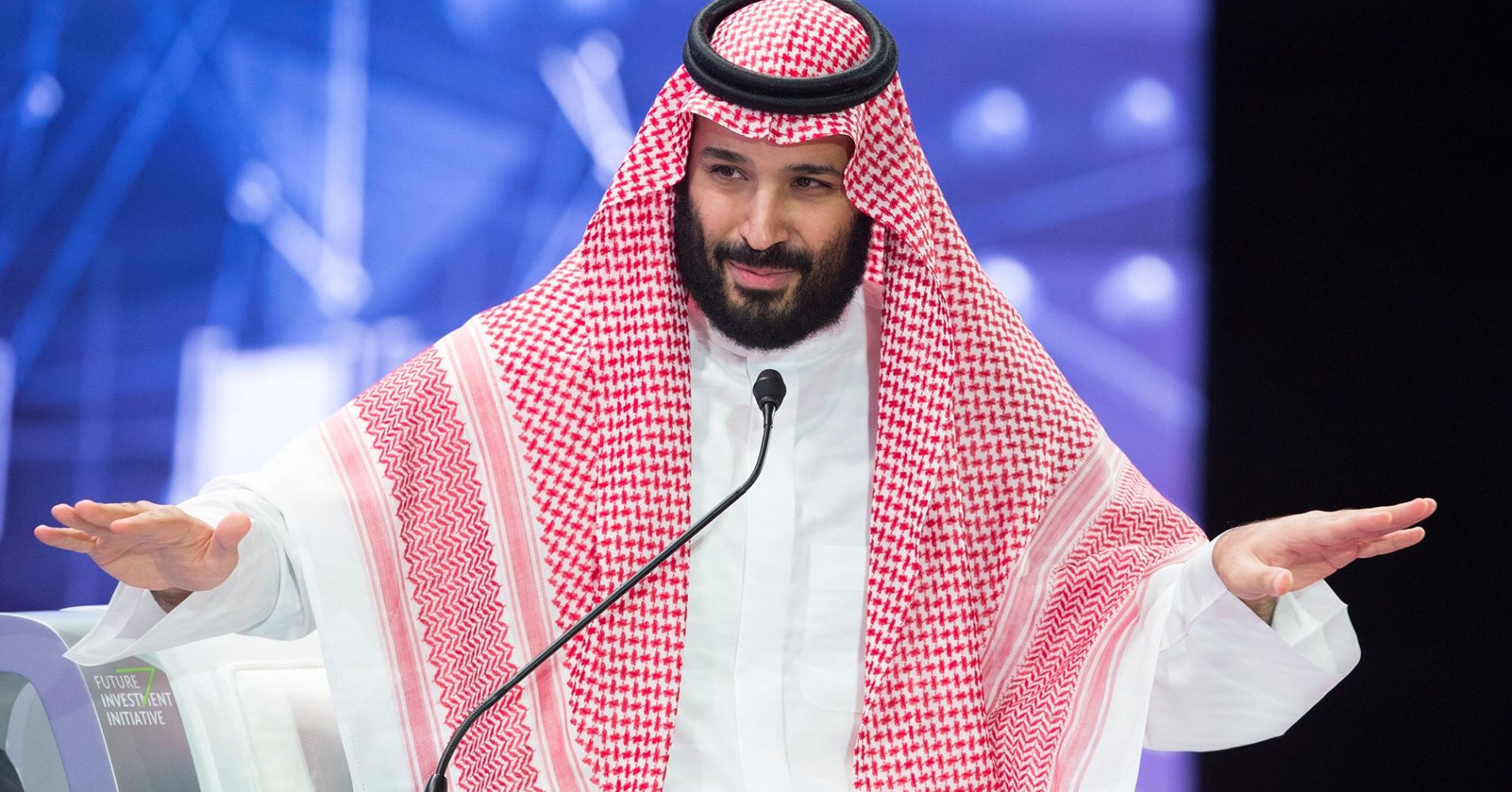
Aramco’s hugely successful bond offering on Tuesday may be the final nail in the coffin for the Saudi oil giant’s much-anticipated and long-delayed stock market debut.
Just three years ago, the Saudis cast the initial public offering for Aramco as the key to Crown Prince Mohammed bin Salman’s ambitious plan to diversify his nation’s oil-dependent economy. By offering investors the opportunity to own a piece of the world’s largest oil company, the kingdom hoped to raise $100 billion to seed investments in new industries and turn the petrostate into a technology and entertainment hub.
Market watchers were already questioning the IPO after Saudi Arabia’s sovereign wealth fund struck a $69.1 billion deal last month to sell Aramco its 70-percent stake in petrochemicals giant Sabic. Aramco’s first-ever bond offering only raised further doubts about the need to go public.
Seeking to raise $10 billion in its first debt sale, Aramco attracted more than $100 billion in bids from bond investors. While the bond offering will reportedly fund a portion of the Sabic acquisition, it also suggested there is plenty of appetite for future debt sales.
“To the degree to which the goal of the IPO was seen as providing more funding for the Public Investment Fund … if you can do this with a bond offering, the question is do you need an IPO?” said Helima Croft, global head of commodity strategy at RBC Capital Markets, referring to the Saudi sovereign wealth fund.
To be sure, the IPO is still seen as a priority for Prince Mohammed, and Saudi officials maintain that it will happen sometime in 2021. But the bond offering proves the kingdom can tap capital markets without the headache of an IPO.
Despite being announced in January 2016, the Saudi government has yet to make key decisions, including where to list shares. Listing on a U.S. stock exchange could be perilous because it would expose the kingdom to lawsuits over its alleged role in the Sept.11, 2001 terror attacks in New York and Washington, D.C.
The indecision is also reportedly due in part to transparency requirements that would force Aramco to open its books to the world. While Aramco’s bond prospectus offered new details about its operations and financials, a stock offering is “a completely different ballgame,” said Roger Diwan, vice president for financial services at IHS Markit.
Disclosure requirements for an IPO are much higher than for a bond offering. Diwan says it might not make much sense for Aramco to subject itself to that level of disclosure, particularly if the Saudis can raise money cheaply on the bond market.
“What the Aramco bond offering shows you is you have an underleveraged giant that you can use to juice up your capital when you need it,” Diwan said.
In order to attract investors, Aramco would also have to offer an attractive dividend yield on par with payouts from oil giants like Exxon Mobil and BP. Those dividend yields range from about 4% to 6%.
In comparison, the Aramco bonds were trading roughly 1.25 basis points above the 10-year Treasury yield at 2.489%. That means Aramco’s payouts to potential shareholders could be higher than what it needs to offer debt investors.
Analysts also caution that the scramble for Aramco debt is not a direct indication of interest in owning the company’s shares. Debt investors are typically more passive than shareholders, who have greater say in how the company is run.
Investing in Aramco equity could create thorny questions for big investors, who must answer to their own shareholders, Diwan said. Those shareholders could push institutional investors to pressure Aramco to disclose the impact of climate change on its operations or to improve environmental, social and governance standards.
Shareholders may also ditch investors who purchase Aramco stock due to lingering outrage over the killing of dissident and journalist Jamal Khashoggi by Saudi agents.
“The shareholders of those big institutional asset managers who own Aramco, at least in the West, would have a lot of political questions,” Diwan said. “That is not the same on the debt.”
Michael Bradley, managing director for energy strategy at investment bank Tudor, Pickering, Holt & Co, says Tuesday’s bond issuance could allow the IPO to be pushed back because there is no rush to raise cash. However, he believes it ultimately creates a much smoother path to the stock market debut.
On the political side, the bond sale shows that investors will not be detracted by the Khashoggi killing, he said. Just six months ago, the conventional wisdom was that the incident left Saudi Arabia with little political capital and the kingdom would have to keep oil prices low to appease the Trump administration, Bradley noted.
Instead, Saudi Arabia has slashed its output this year, helping to boost benchmark oil prices by 30-40% this year and reassuring investors of its influence over the market. The public disclosures in the bond prospectus have also put to bed some “nagging questions,” removing an element of uncertainty.
“I personally think the public disclosures make the IPO much easier to float because a lot of info has been revealed which will help in the range of pricing when the deal is floated,” Bradley said in an email.
“Bottom-line, the massively oversubscribed Aramco bond deal (way exceeded the most wild expectations) bodes well for the success of an eventual Aramco equity IPO.”
